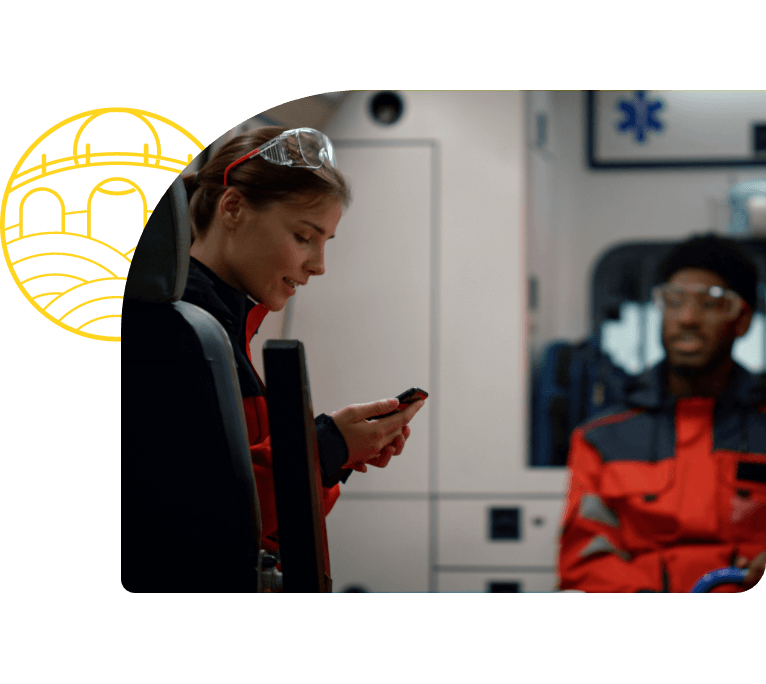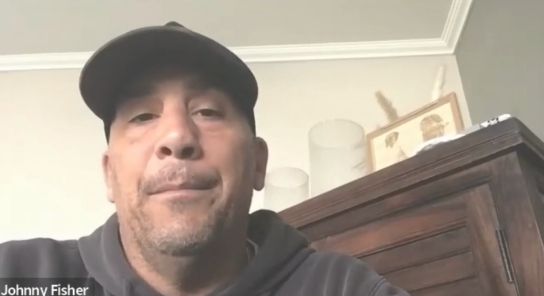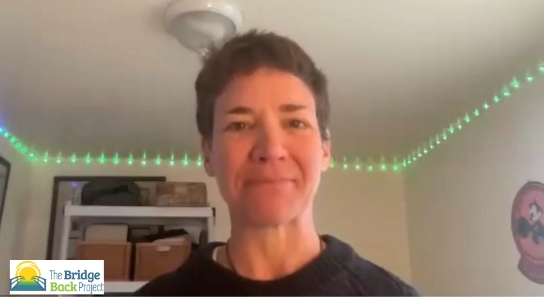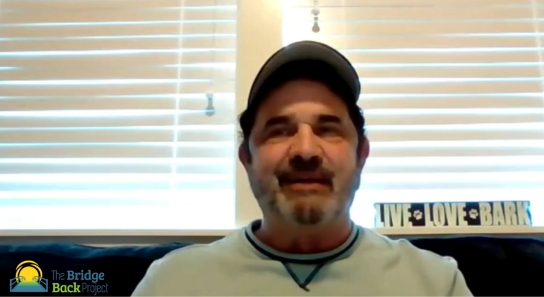Financial Assistance
Who is it for?
First Responders (Active and Retired)
- Fire
- Law Enforcement Officers
- EMS
- 911 Operator
Active Duty Military and Veterans
- Army
- Navy
- Airforce
- Coast Guard
- Marine Corps
Healthcare Frontline Workers (Active and Retired)
- Providers who are directly witnessing and treating acute trauma in their line of work (eg ICU and ER doctors and nurses)
Asian American and Pacific Island (AAPI), Black and African American, Indigenous, Latino/a/x, and mixed-race people
Gender minorities and Women
LGBTQIA2S+ individuals
We provide $600 grants to cover three 60 min Fascial Counterstrain appointments with approved providers in our network for individuals who identify as belonging to one or more of the communities listed above.
The Bridge Back Project does not charge participants for these treatments. Treatment is fully funded through generous donations from friends of the project and past participants who want others to be able to experience the benefit they’ve received.
Please fill out this short questionnaire to see if you qualify for covered care with one of our practitioners.

Stories of lives changed by Fascial Counterstrain

Recovery Story of Vet and Retired Highway Patrol Officer
Retired California Highway Patrol Officer Johnny Fisher talks about his experience with receiving Fascial Coutnerstrain as part of the Bridge Back Project's Financial Aid Program. The offscreen voice is Theora Moench, Bridge Back Project’s Executive Director.

Counterstrain helped healing from injury of Former Athlete and Veteran Pilot
Retired Naval Aviator and professional athlete Dr. Kristin Barnes shares her experience with Fascial Counterstrain. The offscreen voice is Theora Moench, Bridge Back Project’s Executive Director.

Retired Law Enforcement Officer's recovery journey and relief from treatment-resistant symptoms
Veteran and retired police officer Ron Hansen talks about his experience receiving counterstrain as part of the Bridge Back Projcet's Financial Aid Program. The offscreen voice is Theora Moench, Bridge Back Project’s Executive Director.
Frequently Asked Questions
- How much does it cost? Show Answer Treatments are free to you. There are no out-of-pocket costs because treatment is fully funded by the Bridge Back Project through generous donations from friends of the project and past participants who want to make sure others can experience the benefit they’ve received.
- What symptoms can Fascial Counterstrain help with? Show Answer Fascial Counterstrain can help address pain - acute and chronic, restricted mobility, limited range of motion, fatigue, insomnia, physical complaints, gastrointestinal conditions, nerve weakness or pain, persisting agitation, and more. Program participants report improvement in sleep, pain control, organ function, as well as mental and emotional health. Tolerance to everyday events improves as well as the ability to interact with others, because triggers are not as easily activated.
- Will this impact benefits I receive from insurance or government agencies? Show Answer No. We are an independent, non-profit organization. We do not handle or report personal health information to external parties. We provide funds to help you cover optional, supplemental care based on your desire to include Fascial Counterstrain as part of your recovery plan. If you have any questions, plase consult your primary care physician as we cannot and do not give medical advice.
- What to expect during a Fascial Counterstrain appointment: Show Answer Treatments last 60 minutes. You remain fully clothed and sit or lie on a comfortable massage table. If you want, you can share your symptoms and experience with your provider, but this is optional. Then your practitioner will gently touch your head with their hands to do a "cranial scan". This is a diagnostic technique used to identify which structures have been over-stimulated by injury, stress, and trauma. Then, based on what you've shared and what they learn from the cranial scan, they will treat certain areas with a short "glide", hold, or position. The touch is similar to massage but much lighter and much more precise.
You can ask your provider to verbally walk you through everything they are doing before they do and they will be happy to keep you informed throughout your experience. They are also ready to pause at any moment if you need them to so please feel encouraged to ask for pauses whenever that would make you feel more comfortable. - What to expect after treatment: Show Answer Most patients experience pain relief and improved peace of mind. After treatment, it is important to drink plenty of water, rest, and refrain from intense exercise or physical labor for at least 24-48 hours, if possible. We also recommend having a trusted, safe person or a mental health professional that you can talk to if anything comes up after the session.
- Is it painful? Show Answer Counterstrain is gentle and non-invasive. The touch you’ll experience is less firm than what you would experience during a massage. The practitioner will locate “tender points” on your body, which tells them which anatomical structures (nerves, bones, arteries, muscles, organs, etc) need treatment. Sometimes these tender points are very tender but our practitioners do their best never to apply more pressure than is necessary.
- Is it possible to have an adverse reaction? Show Answer Infrequently. In some cases, people temporarily experience increased achiness and extreme fatigue but this should not last more than 24 hours and is often relieve with a good nap or night's sleep. Others have experienced memories or waves of emotions during or shortly after treatment but without the escalating negative response that those triggers have brought on in the past. If this occurs, it is usually short-lived, and is followed by a profound sense of ease, relief, and relaxation. Our practitioners are prepared and able to support you should this happen. We also recommend having a trusted person or mental health professional that you can speak to after a session if you want further support to process anything that comes up during or after treatment.
- How long do the effects of the treatment last? Show Answer Once treated, the effects should last indefinitely unless the system is re-injured or re-traumatized. Instead of treating just symptoms, Counterstrain treats the cause. The intervention allows the body to deal with and dissipate stressors on its own. A significant traumatic event or stressor can - and should - elicit an activation of the body's protective mechanism - aka the Fight or Flight Response. However, Counterstrain is able to normalize the body’s responses so that individuals don’t get stuck in that activated state of high alert.
However, for patients living with severe physical injuries, the body is brilliant at masking or compensating pain related to those injuries. Depending on how severe or how long you have had the condition or injury, there may be a “stack” of complaints to work through. We have found that three sessions is often enough create noticeable, lasting, positive changes for most clients.

Still not sure?
Please contact us with any other questions that you have and we will work to get you the answers that you seek.
Additionally, we have several program alums who are on call to speak with peers about their experience so that you can make the best decision for your own care.
Stay in the loop
Do you want to receive regular updates on upcoming events and news regarding The Bridge Back Project?